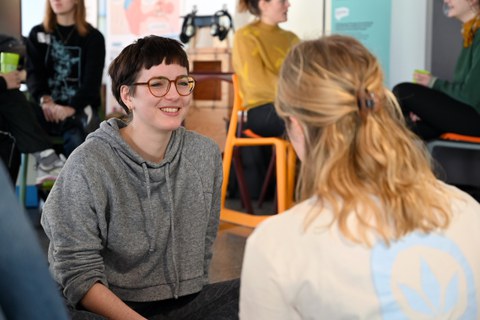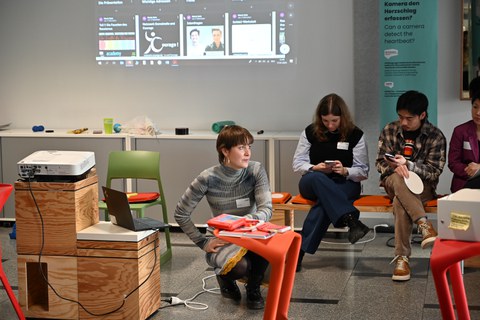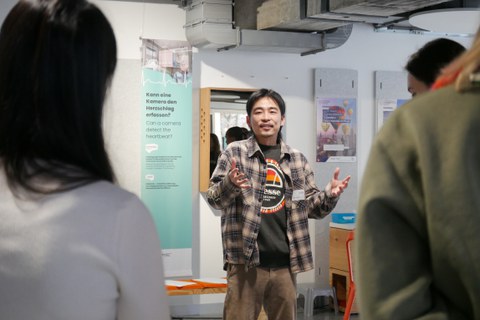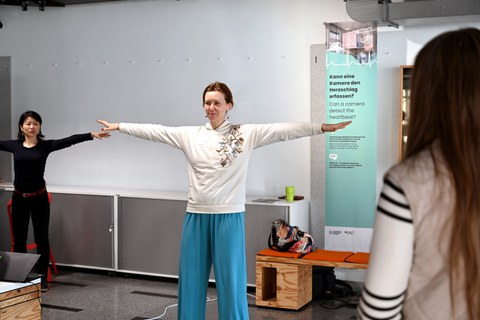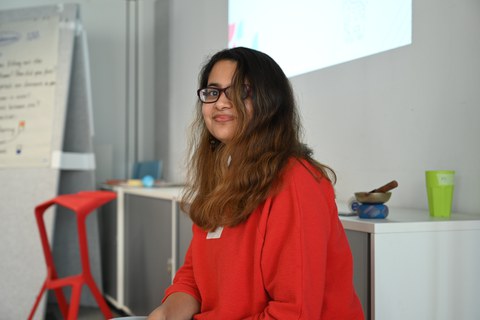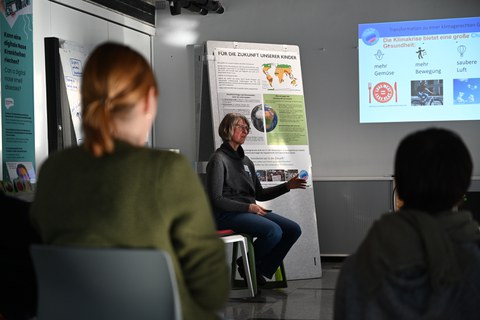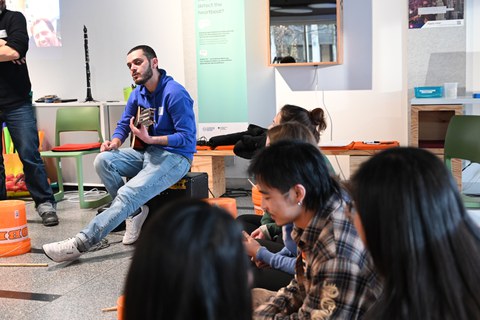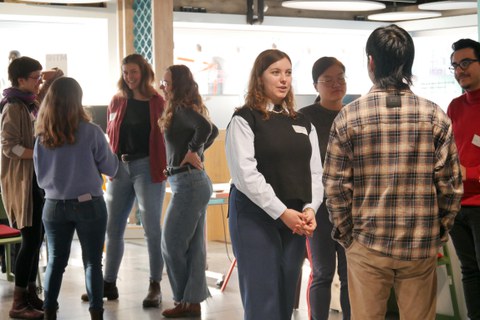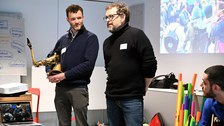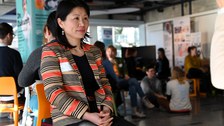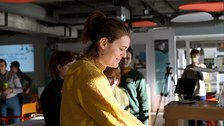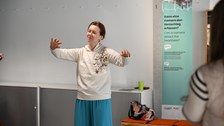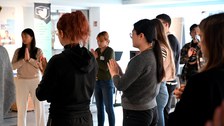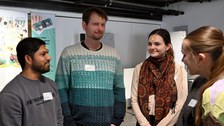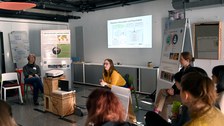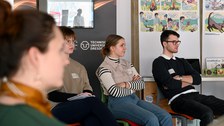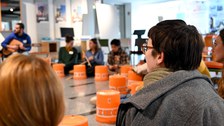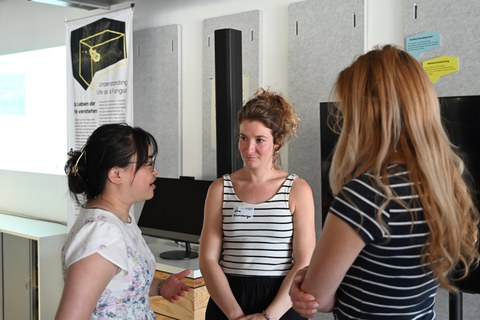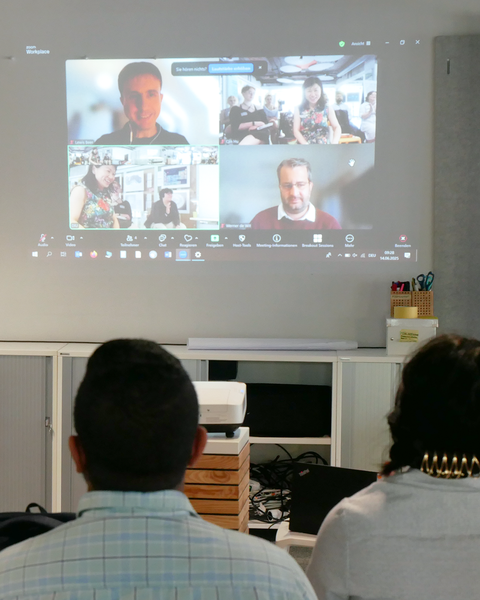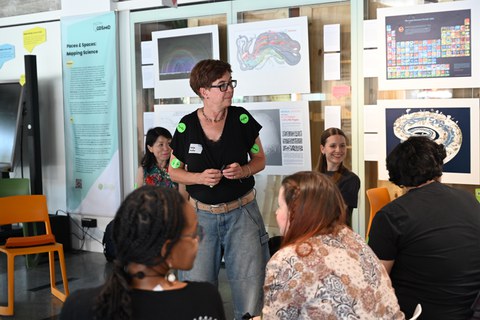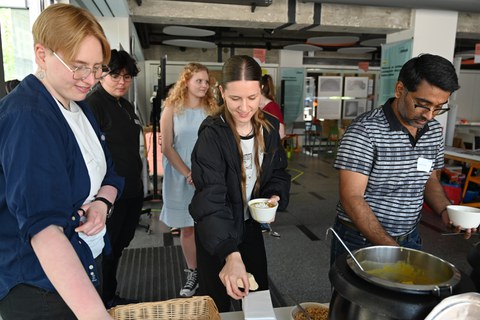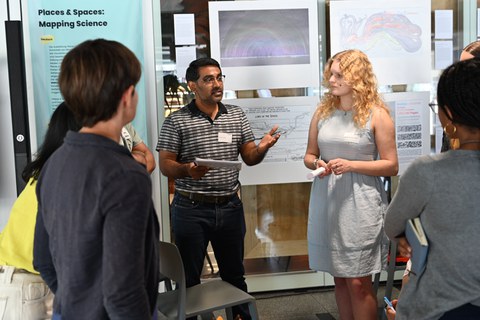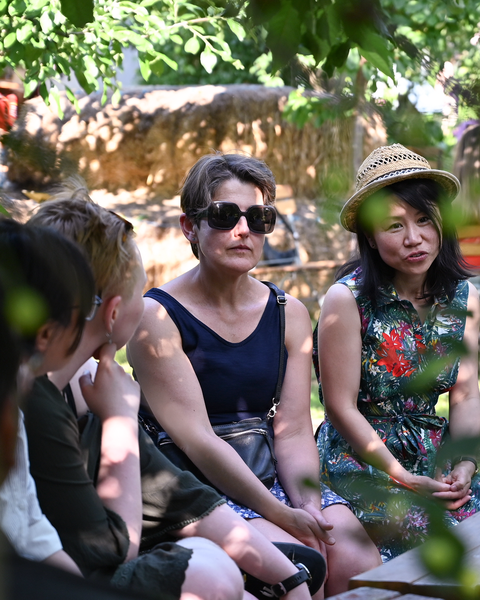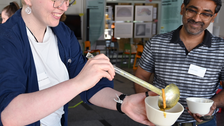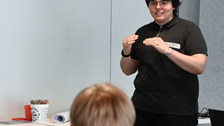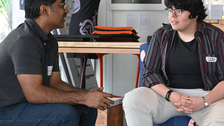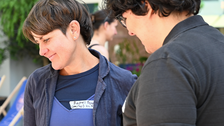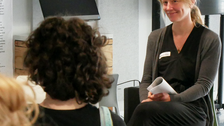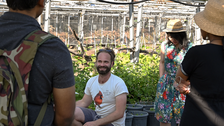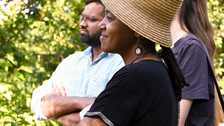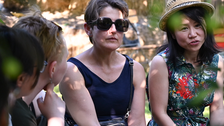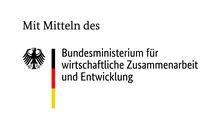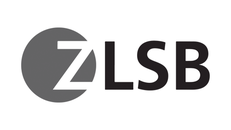Review TUD Global Citizenship Lab
Reviews of past GC Lab Events
Great kick-off! Report on the TUD Global Citizenship Lab in the summer term 2024
The first TUD Global Citizenship Lab was multi-perspective, energetic and successful.
On 28.06. and 29.06.2024 the TUD Global Citizenship Lab took place for the first time. We look back with pleasure on an exciting and successful event.
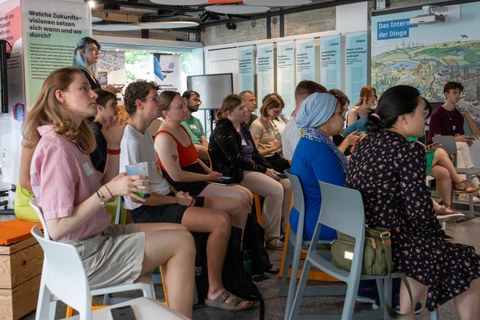
Teilnehmende des TUD Global Citizenship Lab im SoSe 2024
More than 40 participants, including committed students, doctoral candidates from various disciplines as well as internal and external TUD experts and stakeholders from a wide range of fields, organizations, countries and cultures, came together at the COSMO Science Forum to approach the topic of Global Citizenship Education (GCED) together, to network and to act.
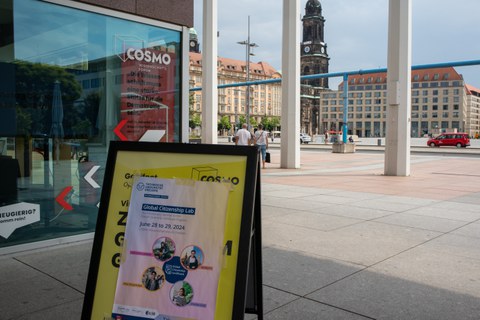
COSMO Wissenschaftsforum
The location for the two-day lab could not have been more fitting than the COSMO Science Forum in the Kulturpalast am Altmarkt. The forum acts as a link between science and urban society and, thanks to its open and flexible character, invites people to meet and collaborate.
The TUD Global Citizenship Lab is a cooperative learning offer supported by the Center for Teacher Education, School and Vocational Training Research (ZLSB) as part of the state initiative ESD SDG 4 - Education for Sustainable Development (ESD) in university teacher training in Saxony, funded by Engagement Global with funds from the Ministry for Economic Cooperation and Development.
What contributes to the mind- and skillset of a global citizen?
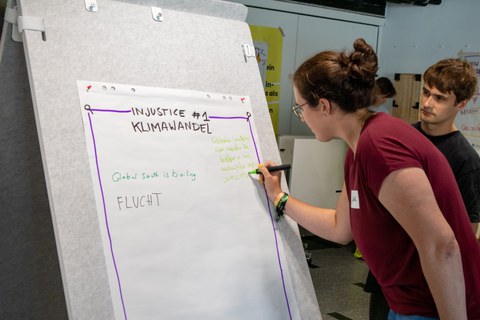
Workshop zum Themenkomplex Global Citizenship Education
In various interactive sessions, the topics "Multilingualism and Global Citizenship Education" (Dr. Rachel Bowden, ZLSB, TUD), "Global Learning, (Post)Colonialism and Global Citizenship" (Maria Nelz, aha - anders handeln e.V./ Peter Che Nfon - founder of Sustainable Actions Africa), "Resource Injustice using the Example of Mining and the Smartphone" (Oscar Choque, Ayni - Verein für Ressourcengerechtigkeit e. V./ Francesca Piccinotti) were discussed. V./ Francesca Piccinotti, arche noVa - Initiative for People in Need e.V.) and "Cosmopolitan perspective and an attitude critical of discrimination and racism" (Hàochéng Lóu, umbrella organization of migrant organizations in East Germany).
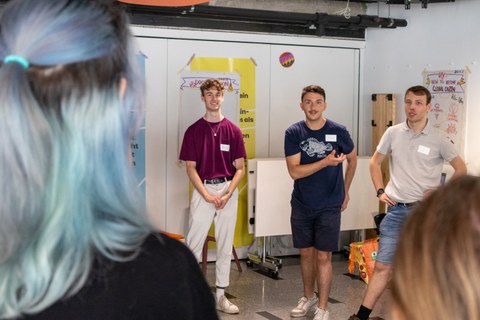
Spielerische Übungen zur Auflockerung
Learning and testing useful tools and skills using the peer-to-peer approach was also at the heart of the program: the peer counselling method for focused and pattern-breaking solution-seeking (Klara-Johanna Fabisch, tuuwi, TUD), SMART for motivating, tangible and actionable goal pursuit (Marlene Maria Schreiber, reflektiert.engagiert am Integrale, TUD) and the Match Maker program as a compass for selecting the right university groups for student engagement (Lea Hummitzsch, Integrale - Institute for studium generale, TUD).
In order to involve all participants equally, the lab was held bilingually in English and German with support in other languages.
Networking, practice, community and outreach
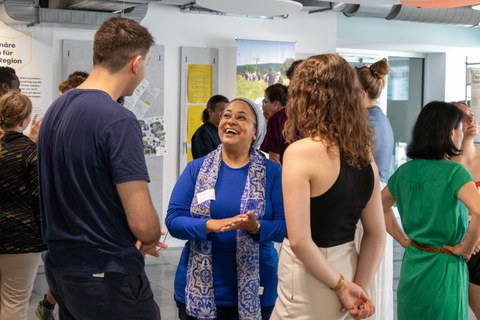
Austausch im Pitch- und Vernetzungstreffen
Another highlight of the lab was the extremely lively and informative pitch and networking session on Saturday. Committed representatives from TU Dresden and urban society gave insights into their organizations, initiatives, projects and fields of activity and then engaged in conversation with the participants.
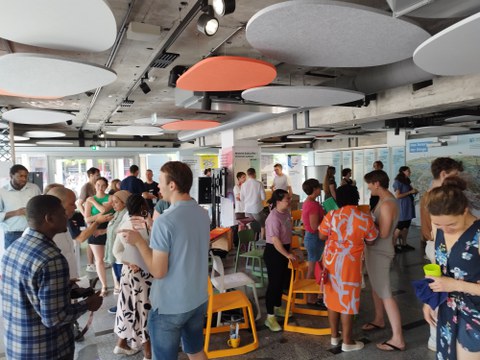
Pitch- und Vernetzungstreffen
Participants included experts from civil society("Clean Dresden" campaign and NGO Cradle to Cradle Saxony; aha - anders handeln e.V. Engineers without Borders; climatechallenge), stakeholders from TU Dresden(alumni network and international regional ambassadors; CIPSEM) and representatives of the International Office (TUD Internationalization Award; International Tutorial Programme; Cultural Office; scholarship programmes for international students; Student Mobility Programme (including ERASMUS) and Buddy Programme GSW; EUTOPIA).
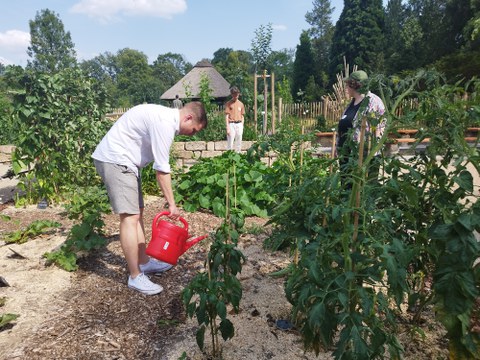
Praxiseinsatz im Botanischen Garten im Projekt "BildungsAcker"
The lab concluded with two practical assignments , which emphatically underlined the importance of bringing together knowing/knowing and doing/acting. Despite the summer heat, the first assignment took place in the teaching and school garden of the Botanical Garden , accompanied by student employees in the ESD project "BildungsAcker" (team Prof. Jana Markert, TU Dresden).
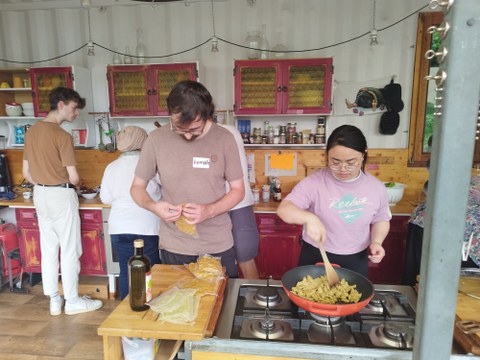
Gemeinsames Kochen in der Alten Gärtnerei
Later, an excursion led to the old nursery in Dresden Pieschen. During a mindful guided tour by Sebastian Kaiser, one of the founders of the nursery, the participants learned not only about a piece of permaculture, but also about the multi-layered transformative history and the concept of participatory district development behind the nursery.
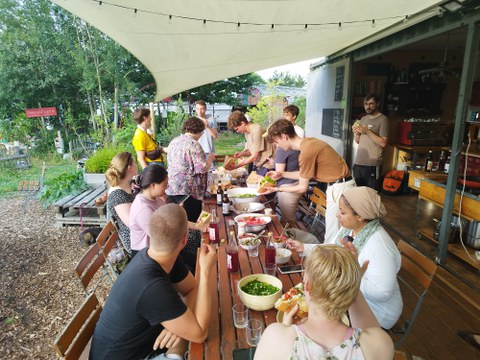
Gemeinsames Abendessen in der Alten Gärtnerei
The evening was rounded off with cooking together, a social get-together and a unifying round of reflection. At the end of the two days, new interpersonal connections, valuable "seeing" and "listening" to each other as well as a tender and solidary affiliation among the participants were noticeably created. The social-emotional learning and growing together is the best testimony to a successful educational event.
“Authentic Connections” and food for thought - Report on the second TUD Global Citizenship Lab
On January 17 and 18, 2025, a group of almost 40 German and international TUD students from various disciplines and 12 experts from the fields of environmental protection, anti-discrimination and tolerance came together for the second TUD Global Citizenship Lab.
The Lab took place at the COSMO Science Forum on Dresden's Altmarkt, which strives to provide a point of exchange between science and society. The focus of the lab this semester was on the topic of mindfulness. In this spirit, the program consisted of a comprehensive mix of theoretical input sessions and practical exercises such as Qi Gong.
The event was opened by the coordinator of the sustainability-oriented association “aha - anders handeln e.V.”, Maria Nelz. Tropical forester by profession, she took the participants on a mental journey to the oppressed of the colonial era. She explained in detail how the narrative of cultures being supposedly inherently less valuable than others still permeates our thinking today.
Lei Meng, education officer at the Gender Competence Centre Saxony, and Hàochéng Lóu, anti-racism advisor at the umbrella organization of migrant organizations in East Germany (DaMOst e.V.), added a current perspective to Maria Nelz's remarks. By means of illustrative group exercises they showed how even positive prejudices can exert negative pressure on those affected by racism.
The second day of the GC Lab was kicked off by Nataliya Urban, a passionate QiGong teacher. The translation studies graduate grew up in the Urals and has been practicing the Far Eastern art of deep relaxation since the age of 16. Performing the exercises together gave our participants a palpable sense of calm and energy for the day ahead.
With Fatema Darbar, founder of the InterLokal Social Hub in Dresden, the participants were then able to practise techniques for interacting with others in a more authentic and profound way, both at a professional level and in personal relationships. Practices such as “active listening” alternated with a round in the hot seat with personal questions that invited people to open up. Fatema Darbar was supported by Camila Tapia. Born in Chile, she is a teacher of English and Spanish and is also involved with InterLokal.
The presentation by Dr. med. Charlotte Großkopf, Rebekka Post and Dr. med. Gudula Keller from Health for Future Dresden made it clear to the participants with sensitivity and the necessary seriousness how drastic the state of the earth is due to the climate crisis. Despite the gravity of the situation, they succeeded in demonstrating how each individual can do their bit to combat global warming and thus improve their ecological handprint.
Afterwards, Michal Tomaszewski, Tarek Al Hammad and Richard Ebert, all members of Banda Comunale encouraged and inspired the participants in a session on “Music and Civic Engagement”. The fact that music is a powerful universal language that can connect people in their equality, their deepest longings, and most beautiful ideals and overcome even persistent bias was impressively demonstrated by them— through their tireless commitment and on-going music education work. The trio not only ensured a bright mood and perfectly tuned musical instruments, but also led one or two songs together, the percussion accompaniment of which was improvised on plastic buckets from the hardware store.
The weekend was rounded off by a reflection session with Qin Hu, initiator and coordinator of the TUD GCC program, who invited participants to reflect and creatively process what they had experienced with the help of a drawing and writing exercise.
On both days, the participants were provided with a variety of hot soups courtesy of Suppenbar Dresden.
We would like to thank our speakers and all participants for a successful and enriching second TUD Global Citizenship Lab and are already looking forward to the next introductory event of the GCC program in the summer semester!
Some impressions of the lab:
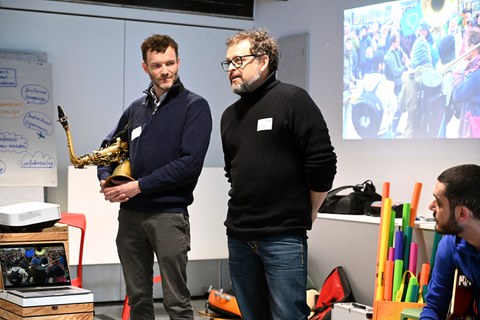
© Mascha Schelten
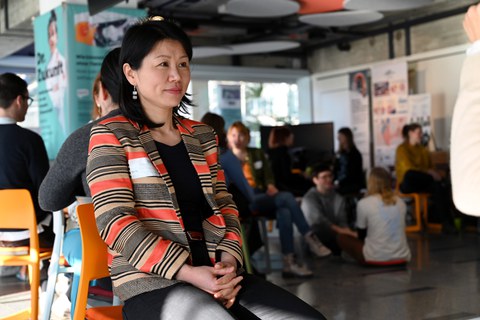
© Mascha Schelten
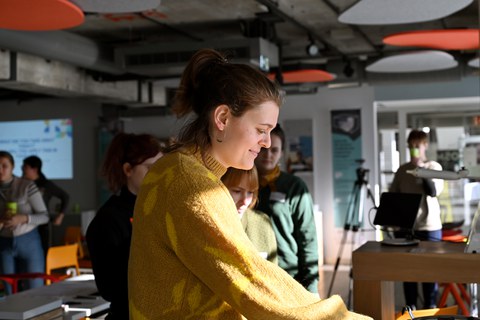
© Mascha Schelten
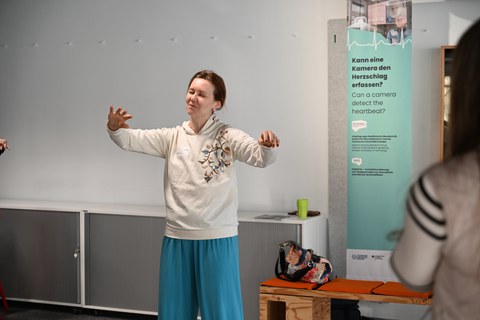
© Mascha Schelten
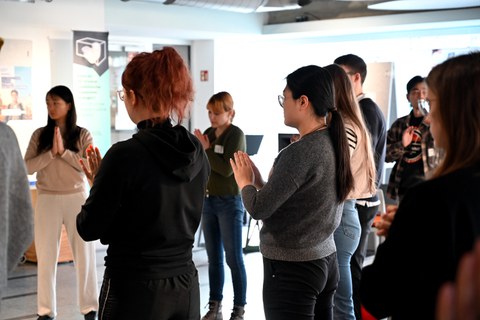
© Mascha Schelten
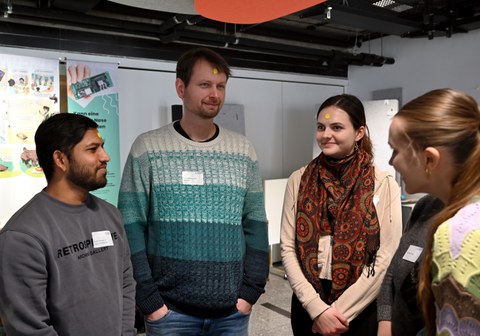
© Mascha Schelten
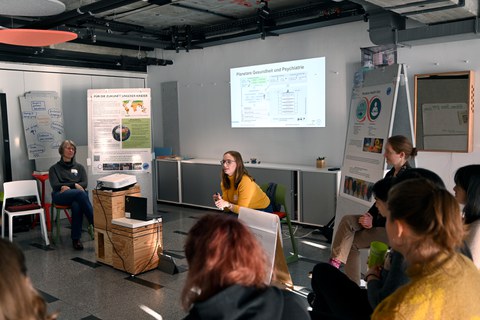
© Mascha Schelten
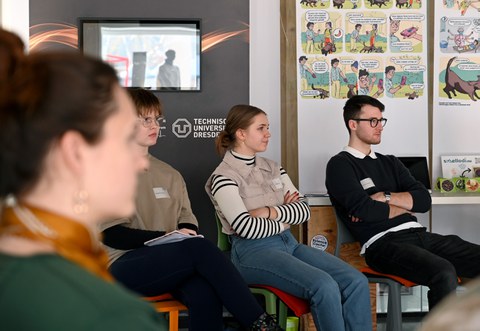
© Mascha Schelten
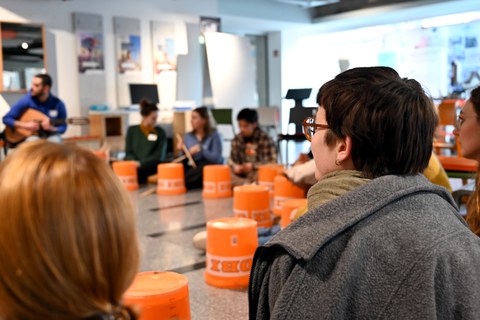
© Mascha Schelten
'Global Citizenship Education through Partnership and Participation' - Review of the TUD Global Citizenship Lab in SoSe 2025
The third TUD Global Citizenship Lab took place on June 13 and 14, 2025 at COSMO Science Forum. With International Office in the leading role and Center for Teacher Education and Educational Research as strong partner, the Lab has been a success. The location on Dresden's Altmarkt, an important interface between science and civic society, has hosted the Lab since the kick-off of the “TUD Global Citizenship Certificate” program in summer 2024.
The motto of the lab this summer was 'Global Citizenship Education through Partnership and Participation'. Participants included committed local, national and international students from undergraduate and postgraduate degree programs, as well as young researchers like doctoral students. The program offered a colorful mix of interactive workshops, pitch and discussion rounds and experience-oriented outdoor activities. The professional and cultural diversity was clearly evident in the collaborative sessions. An international flair dominated the two-day event.
The lab opened with a transformative 'Sustainability Challenge!'. Led by Dr. Rachel Bowden from TUD's Teacher Training Center, a full-day program was created with the help of educator and youth worker Flor de Matos (CAMBIO e.V.) and Eine-Welt-Promoterin Sita Buchberger (arche noVa). A competency model by Brundiers et al. (2021)/Bianchi et al. (2022) for holistic teaching of sustainability competencies was tested. The combination of in-depth self-reflection, systematic-analytical methodology, out-of-the-box thinking and solution-oriented group work helped the participants to adopt a new perspective on local-global problems and to see themselves as effective agents of change.
The second day of the TUD Global Citizenship Lab was kicked-off with an introduction to the GCC program and its partner program, the EUTOPIA Certificate of Internationalisation (EUCI). Guests Lewis Beer (EUTOPIA, University of Warwick) and Werner de Wit (Stellenbosch University, South Africa) introduced the students to the UNESCO Story Circles method in a hybrid format. This method trains students to approach and appreciate others without prejudice in order to carefully counteract bias in people's minds and encounters, thereby enabling deeper connections and partnerships - based on a new, valuable sense of community.
In the subsequent pitch round and panel discussion, participants gained vivid insights into partnership in the context of academic collaboration from Dr. Sebastian Spitzer (ILK, TUD) and Dr. Soon Ho Yoon (KIST), who joined the format digitally. The two scientists have a ten-year friendship and professional collaboration in the successful international cooperation project National Network KOREA under their belt. Their perspective was complemented by Charlotte Müller from the volunteer agency ehrensache.jetzt (Bürgerstiftung Dresden), who provided interesting insights and food for thought on participation and equality in the context of volunteering. Kristina Krömer, founder and coordinator of the award-winning outreach democracy project metro_polis, shared relevant and inspiring viewpoints and experiences from her work to strengthen the dialog and democratic participation of people in Saxony.
In her workshop, Kristina Krömer conveyed helpful attitudes, effective methods and conversation skills from the metro_polis project, which takes place in trams and trains and thus reaches people from a wide range of backgrounds and life situations. The skills she taught the participants can be used to grasp understand the needs of others with opposing or even provocative opinions and thus to moderate controversies constructively. This makes it possible to question (preconceived) judgments and to build a consensus as part of a democratic debate despite seemingly large differences.
In her workshop entitled 'We all... - Performative methods for transcultural exchange', Katja Heiser, theater maker, educator and artist committed to cultural work, e.g. at Bürgerbühne Dresden, explored activating, creative and performative approaches and communication methods with the participants. Between fun, interaction and emotionality, the participants tried out new languages, interactive spaces and collaboration in a transcultural environment.
In the sunny summer weather, the students were able to get to know the sustainable life in the district and the neighborhood community around the Alte Gärtnerei in Dresden-Pieschen project during the final guided tour with founding member and co-director Sebastian Kaiser. They also learned about the moving history of the origins of the sustainable gardening project. There was plenty of hands-on experience at the Alte Gärtnerei: local and exotic fruits were tasted, a tour of the community garden was undertaken and homemade lemonade from the garden café was sipped.
Speakers and participants were nourished on both days by vegetarian and vegan soups from Suppenbar Dresden.
We would like to thank our speakers and all participants and look back on a successful third TUD Global Citizenship Lab that made a difference. We are already looking forward to the next introductory event of the GCC program!
What’s next for our Lab participants?
Following the lab, our future TUD-empowered global citizens will be reflecting on the knowledge and insights they have gained, and create their individual roadmap to approach global citizenship. The participants are not left alone, instead, they can benefit from the new community and contacts. Exchange and mutual support are key to growing in and collaborating with a globally-oriented and locally engaged GCC community.
Find out more about the TUD Global Citizenship Certificate
The GCC program is developed by the team for Internationalization@Home in the International Office of the TU Dresden. It is a key contribution of TU Dresden to the implementation of the Sustainable Development Goal 4 coordinated by UNESCO which aims to ensure inclusive and equitable quality education and promote lifelong learning opportunities for all.
All students enrolled at TU Dresden (including doctoral and exchange students) who intend to leverage their knowledge, improve their skills, and help shape the local global community actively and reflectively, are welcome to participate in the GCC program. GCC certifies that you have – in addition to your academic studies – acquired knowledge and skills to understand global challenges in an interdisciplinary, holistic way, and you are capable to embrace them in a committed and competent manner.
Some impressions of the lab:

© Mascha Schelten

© Mascha Schelten

© Mascha Schelten

© Mascha Schelten

© Mascha Schelten

© Mascha Schelten

© Mascha Schelten

© Mascha Schelten

© Mascha Schelten

© Mascha Schelten

© Mascha Schelten
Funded by the Federal Ministry of Education and Research (BMBF) and Free State of Saxony under the Excellence Strategy of the Federal Government and the Länder


